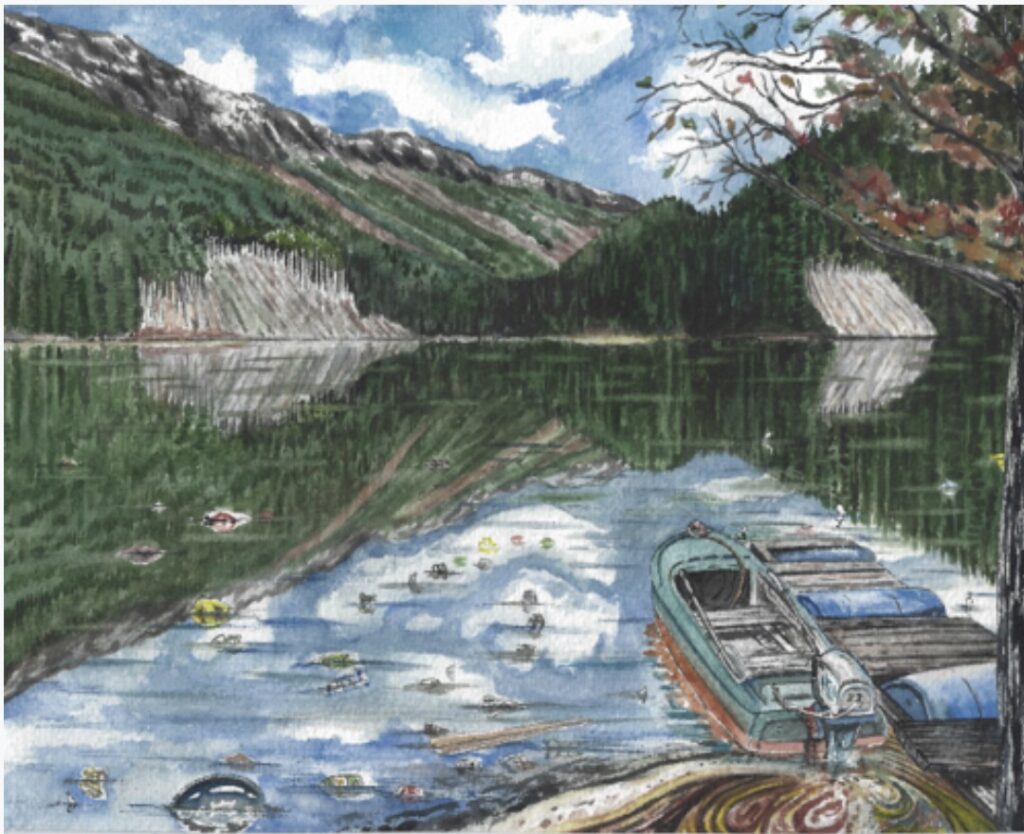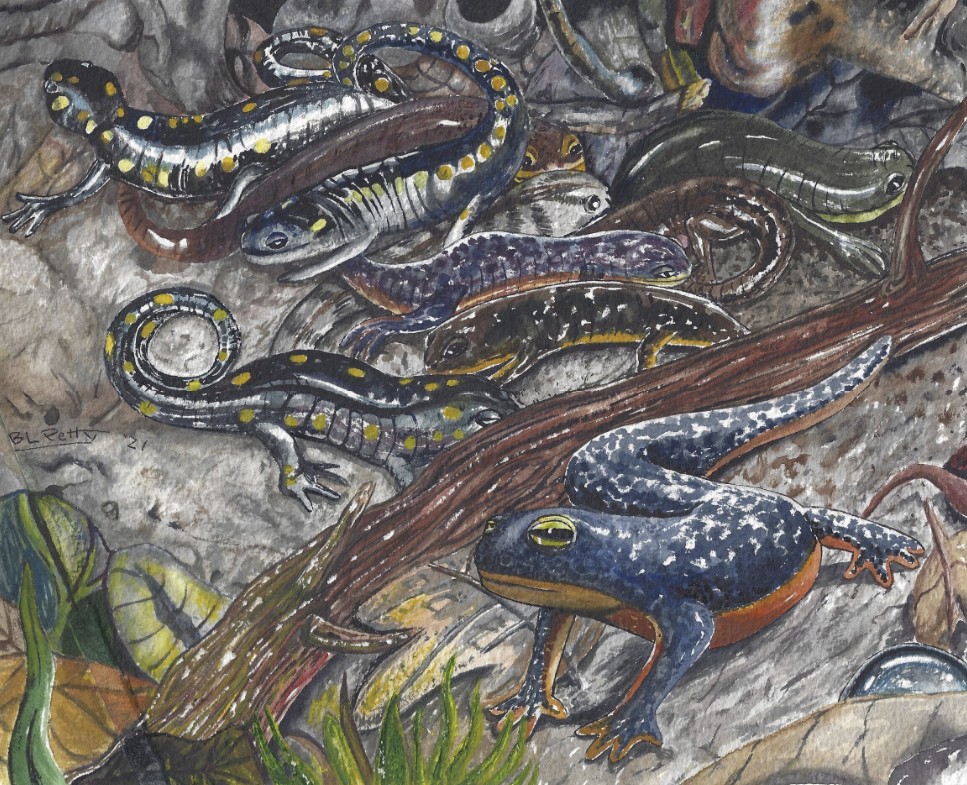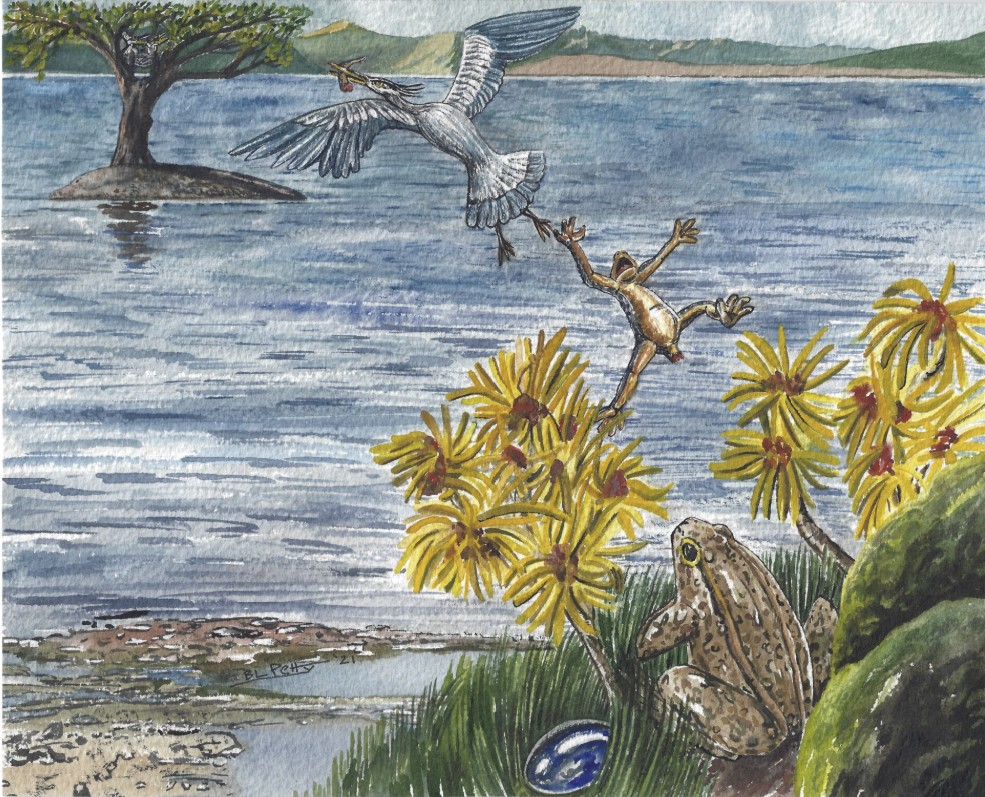In a poisoned mountain lake, a maimed newt and the frog sworn to let him die break an ancient law and prove that mercy can evolve. Ancient Bloodlines is an eco-fantasy fable of interspecies love, where bullied outcasts, petty gods, and wounded wetlands test whether affection can rise above instinct.
EᴠØ-Myth™ Thread
• Interspecies Conscience of Care
• Epoch: Mythic allegory to modern day
• Axis: Survival instinct suppressed to care for a mortal enemy
• Creation’s lesson: When a creature resisted its own nature to preserve another’s life, creation proved it could evolve beyond blind survival. Instinct gave way to reflection, and the Universe took another step toward caring for itself. From that defiance, a higher-order ideal emerged: affection beyond one’s kind.

When a maimed rough-skinned newt is spared by the Columbia spotted frog sworn to let him die, an ancient law of predator and prey fractures. In the poisoned stillness of Kingdom Lake, their forbidden act of care becomes the first proof that evolution can choose mercy over instinct.
A 25,000-word eco-fantasy fable for young adult and adult readers, Ancient Bloodlines follows Newton, a bullied rough-skinned newt left maimed after a heron strike, and Rana, a Columbia spotted frog who defies ancient law by saving him. Their unlikely bond—enemy to ally, and then something deeper—unfolds in a poisoned lake where predators circle, pollution spreads, and tradition demands violence over mercy.
From the shaming circles of the newt herds to the fungal blight weakening Rana’s kin, from looming human desecration to the silent watch of their patron gods—Gorf, guardian of the frogs, and Twen, keeper of the newts—Newton and Rana learn that survival requires more than prayer. Joined by an ancient snapping turtle, they face bullies, betrayal, and the weight of myth itself to prove that kindness and cooperation can change the course of their species’ history.
Though fantasy, the novella is grounded in ecological truth—amphibian decline, cross-species interdependence, and mythic storytelling drawn from lived observation of wetlands and their fragile balance. It entwines fable with environmental realism, treating even the smallest creatures as witnesses to ecological collapse and potential renewal. For readers of Richard Adams’s Watership Down and Jeff VanderMeer’s Borne, Ancient Bloodlines blends ecological realism with mythic-creature empathy, delivering urgency with intimacy—yet standing apart in imagining that even newts and frogs can carry the burden of memory, consequence, and love.


Amid the damp, tangled roots of the wild, salamanders and newts move through a world of concealment and ambush. Newton, a rough-skinned newt, crouches low in the foreground, his golden eyes darting between movement and shadow. Around him, spotted and striped salamanders coil and climb, their vibrant markings radiating warning from the mossy rocks. This is no sanctuary. It is a contest of instinct and deception, where survival belongs to those who stay unseen or strike first.
For more than a century, the giants have poisoned Kingdom Lake, their waste sinking into its depths, their debris piling along the shores. Oil glazes the water, plastic snags in the reeds, and the air carries the sting of rot. The lake’s creatures have always contended with predators, but this is something else—a creeping suffocation, a slow undoing. For the Columbia spotted frog—waterbound, with no path to higher ground—there is no retreat. The lake that once sustained them is turning against them, and soon, there will be nothing left to endure.
Rana, a Columbia spotted frog, watches from the shallows as a heron rips Newton, a rough-skinned newt, from the shoreline. His limbs thrash, but the bird’s grip is firm, dragging him skyward toward the open mouths of its young. Below, witch hazel blossoms quiver, unmoved by the struggle, their golden petals catching the light as if nothing has changed. But for Newton, everything has. The wild does not mourn, nor does it spare. It only takes.